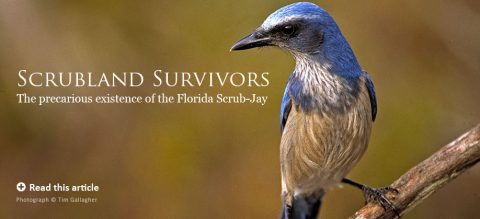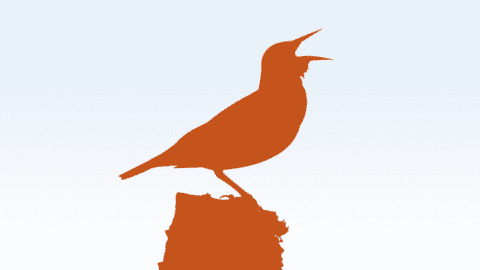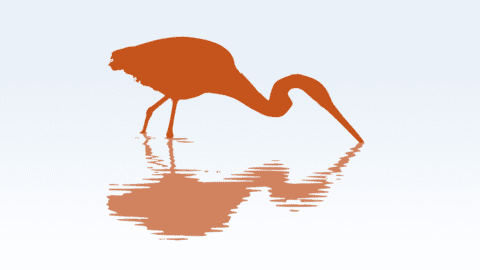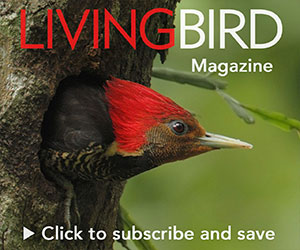Book Review: A Supremely Bad Idea, by Luke Dempsey
Reviewed by Stephen J. Bodio October 15, 2008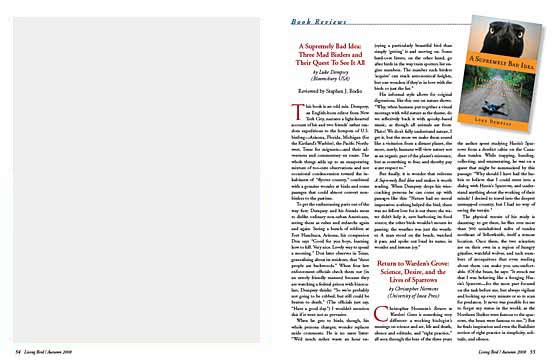

This book is an odd mix. Luke Dempsey, an English-born editor from New York City, narrates a light-hearted account of his and two friends’ rather random expeditions to the hotspots of U.S. birding—Arizona, Florida, Michigan (for the Kirtland’s Warbler), the Pacific Northwest, Texas for migrants—and their adventures and commentary en route. The whole things adds up to an exasperating mixture of too-cute observations and not occasional condescension toward the inhabitants of “flyover country,” combined with a genuine wonder at birds and some passages that could almost convert non-birders to the pastime.
To get the embarrassing parts out of the way first: Dempsey and his friends seem to dislike ordinary non-urban Americans, seeing them as rubes and rednecks again and again. Seeing a bunch of soldiers at Fort Huachuca, Arizona, his companion Don says “Good for you boys, learning how to kill. Very nice. Lovely way to spend a morning.” Don later observes in Texas, generalizing about its residents, that “these people are backwoods.” When four law enforcement officials check them out (in an utterly friendly manner) because they are watching a federal prison with binoculars, Dempsey thinks: “So we’re probably not going to be robbed, but still could be beaten to death.” (The officials just say, “Have a good day.”) I wouldn’t mention this if it were not so pervasive.
When he gets to birds, though, his whole persona changes; wonder replaces snide comments. He is no mere lister: “We’d much rather waste an hour enjoying a particularly beautiful bird than simply ‘getting’ it and moving on. Some hard-core listers, on the other hand, go after birds in the way train spotters list engine numbers. The number such birders ‘acquire’ can reach astronomical heights, but one wonders if they’re in love with the birds or just the list.”
His informal style allows for original digressions, like this one on nature shows. “Why, when humans put together a visual montage with wild nature as the theme, do we reflexively back it with spooky-based music, as though all animals are from Pluto? We don’t fully understand nature, I get it, but the more we make them sound like a visitation from a distant planet, the more, surely, humans will view nature not as an organic part of the planet’s existence, but as something to fear, and thereby pay scant respect to.”
But finally, it is wonder that redeems A Supremely Bad Idea and makes it worth reading. When Dempsey drops his wisecracking persona he can come up with passages like this: “Nature had no moral imperative: nothing helped the bird; there was no fellow love for it out there; the water didn’t help it, save harboring its food source; the other birds wouldn’t mourn its passing; the weather was just the weather. A man stood on the beach, watched it pass, and spoke out loud its name, in wonder and intense joy.”


All About Birds is a free resource
Available for everyone,
funded by donors like you


